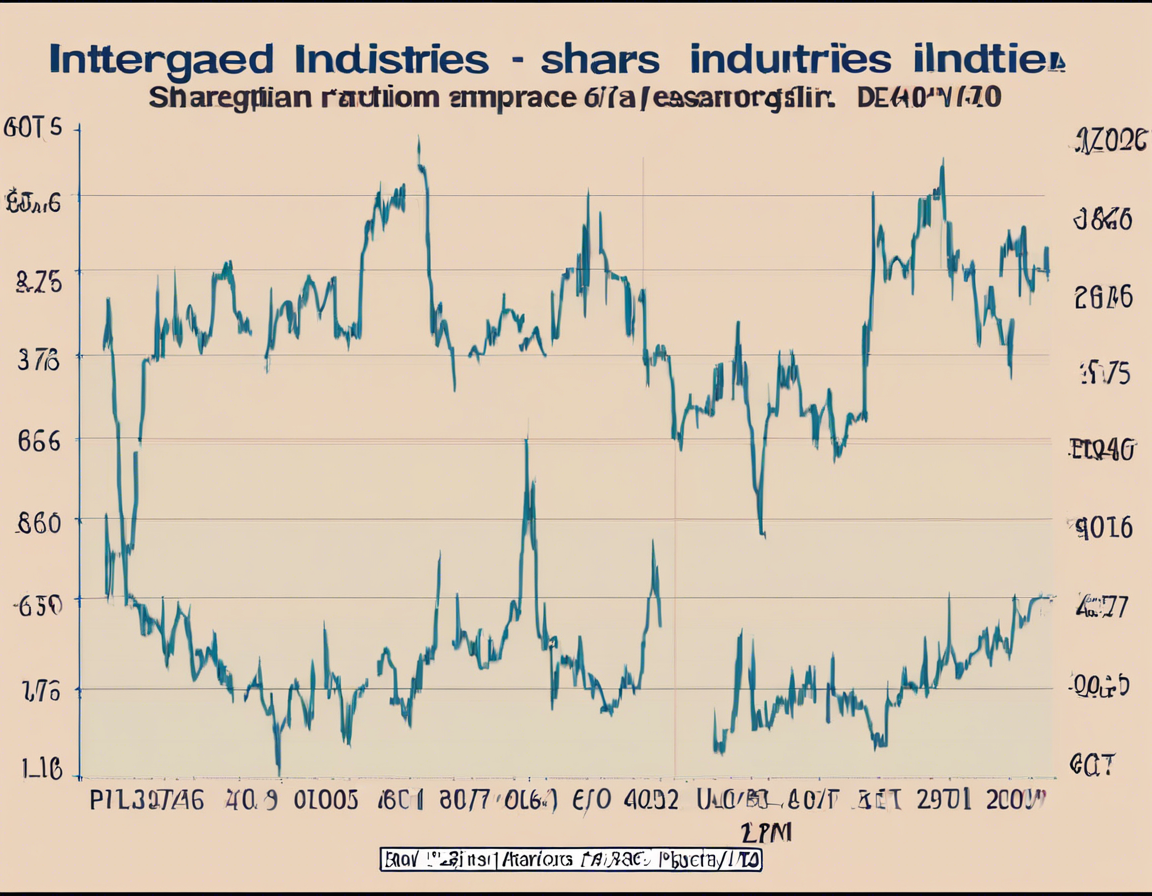The integrated industries sector encompasses companies that are involved in multiple stages of a product’s lifecycle, from production to distribution. This diverse sector includes companies in sectors like manufacturing, technology, energy, and consumer goods. Understanding the trends in integrated industries’ share prices is crucial for investors looking to make informed decisions. In this article, we will delve into the factors that influence integrated industries’ share prices and how investors can analyze these trends.
Factors Influencing Integrated Industries Share Prices:
1. Economic Conditions:
- Integrated industries are heavily influenced by broader economic conditions such as GDP growth, inflation rates, and consumer sentiment.
- A strong economy typically boosts demand for products and services, leading to higher share prices.
2. Industry Performance:
- Specific industry performance plays a significant role in determining share prices within the integrated industries sector.
- Industries experiencing growth and innovation tend to have higher share prices compared to those facing challenges.
3. Company Earnings:
- Earnings reports have a direct impact on share prices. Positive earnings often result in an increase in stock prices, while negative earnings can lead to a decline.
- Investors closely monitor earnings per share (EPS) and revenue growth to assess a company’s financial health.
4. Competitive Landscape:
- Competition within the industry can affect share prices. Companies that demonstrate a competitive edge through innovation or market dominance tend to have higher share prices.
- Market share, product differentiation, and pricing strategies are crucial factors to consider.
5. Regulatory Environment:
- Regulatory changes can have a significant impact on integrated industries. Companies operating in highly regulated sectors may experience share price volatility in response to new regulations.
- Investors need to stay informed about regulatory developments and their potential impact on share prices.
Analyzing Share Price Trends:
1. Technical Analysis:
- Moving Averages: Analyzing moving averages can help identify trends and potential buy or sell signals.
- Relative Strength Index (RSI): RSI is a momentum indicator that can indicate overbought or oversold conditions in a stock.
- Volume Analysis: Monitoring trading volume can provide insights into the strength of a trend.
2. Fundamental Analysis:
- Price-to-Earnings (P/E) Ratio: Comparing a company’s P/E ratio to its peers can help assess its valuation.
- Growth Prospects: Analyzing factors such as revenue growth, market share, and product pipeline can provide insights into future share price movements.
- Dividend Yield: Companies that pay dividends can provide additional returns to investors. Analyzing dividend yield is crucial for income-focused investors.
3. Market Sentiment:
- Analyst Recommendations: Monitoring analyst recommendations and price targets can help investors gauge market sentiment towards a particular stock.
- News and Events: Stay informed about company news, industry developments, and macroeconomic events that can influence share prices.
Frequently Asked Questions (FAQs):
1. How do macroeconomic factors impact integrated industries’ share prices?
- Macroeconomic factors such as GDP growth, interest rates, and inflation can influence consumer demand, company earnings, and overall industry performance, thus affecting share prices.
2. What role does company earnings play in share price movements?
- Company earnings are a key driver of share price movements. Positive earnings growth typically leads to higher stock prices, while declining earnings can result in share price decreases.
3. How can investors use technical analysis to analyze share price trends?
- Technical analysis tools such as moving averages, RSI, and volume analysis can help investors identify trends, support levels, and potential entry or exit points in a stock.
4. What are the key considerations when performing fundamental analysis of integrated industries stocks?
- Factors like P/E ratio, growth prospects, dividend yield, and competitive positioning are crucial when conducting fundamental analysis of integrated industries stocks.
5. How important is market sentiment in influencing share prices?
- Market sentiment, driven by factors like analyst recommendations, news, and investor sentiment, can have a significant impact on share prices by influencing buying and selling behavior.
In conclusion, analyzing integrated industries’ share price trends requires a holistic approach that considers both external factors and internal dynamics of companies within the sector. By leveraging tools like technical and fundamental analysis, staying informed about market developments, and understanding the influence of macroeconomic factors, investors can make well-informed decisions when navigating the integrated industries sector.
